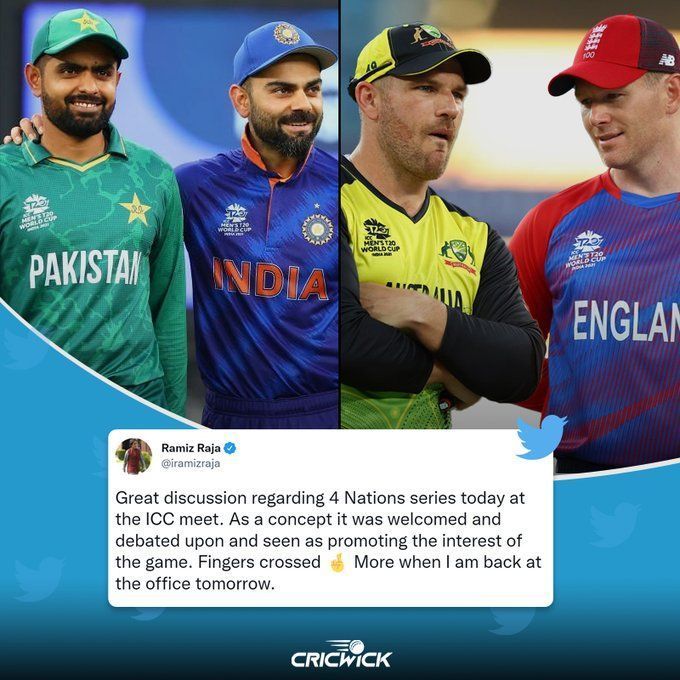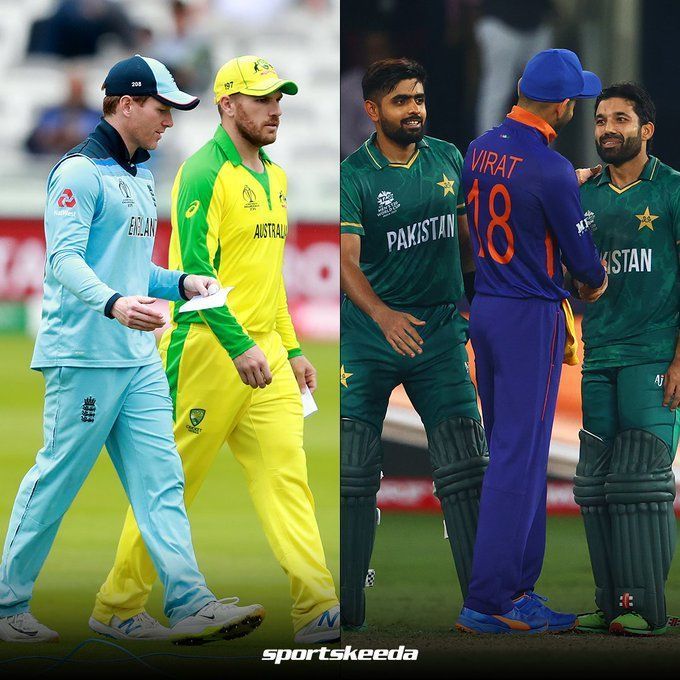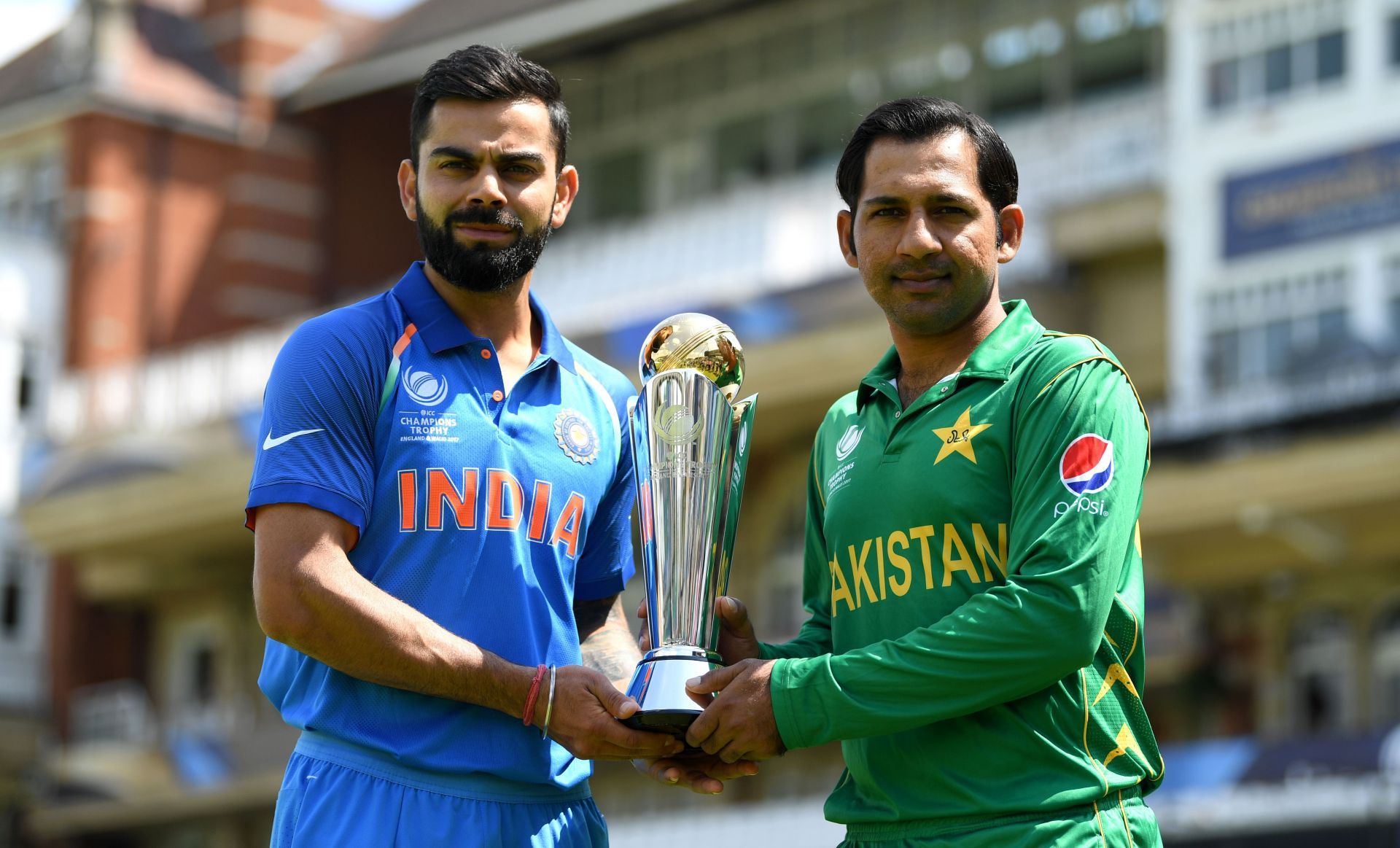
Quadrangular T20I series rejected: Why India-Pakistan match-ups have to wait
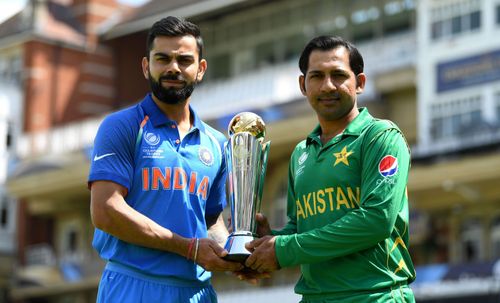
India-Pakistan clashes will continue to come few and far between, with the International Cricket Council (ICC) rejecting Pakistan Cricket Board (PCB) chief Ramiz Raja's proposal for an annual quadrangular T20I series.
The four-nation series was slated to include India, Pakistan, Australia and England, and be run as an ICC-organised event. However, it was unanimously rejected by members on Sunday 10 April at the ICC's annual meeting.
The project would bare fruit by way of huge revenues (reported $750 million USD) and added opportunities to see regular matches between two of cricket's biggest arch rivals.
In cricketing terms, the concept is welcome, but the proposal is seemingly a little thin on addressing the interests of all stakeholders in world cricket.
ICC concerned it devalues its own events
Currently, the ICC's Member Participation Agreement doesn't allow any member nations' board to host more than a tri-nation series. Ramiz Raja's proposal for the event to be an ICC-run event would circumnavigate that current requirement.
In a sense, the ICC is concerned that member nations organizing their own quadrangular events will devalue their own marquee events - notably the Champions Trophy ODI and T20 World Cups.
The ICC has scheduled a major tournament in nearly every calendar year for the next 10 years: the 2022 (T20 World Cup in Australia), 2023 (ODI World Cup in India), 2024 (T20 World Cup in the USA and West Indies), 2025 (Champions Trophy in Pakistan), 2026 (T20 World Cup in India and Sri Lanka), 2027 (ODI World Cup in South Africa, Zimbabwe and Namibia), 2028 (T20 World Cup in Australia and New Zealand), 2029 (Champions Trophy in India), 2031 (T20 World Cup in India and Bangladesh).

The ICC event schedule is totally jam-packed and more or less fixed over the next decade, meaning the quadrangular series is virtually impractical.
The ICC also needs to avoid any ambiguity around upcoming events in order to sell its media rights and sponsorship agreements for the tournament cycle, with no additional tournaments.
Australia, Pakistan, England in favor; India "not in direct opposition"
According to an ESPNCricinfo report, it is believed the England Cricket Board (ECB), Cricket Australia (CA), Cricket West Indies (CWI) and the Pakistan Cricket Board (PCB) were in favor of the proposal, while the Board of Control for Cricket in India (BCCI) was " not in direct opposition" to the idea. Importantly, this report of "by no means unanimous support" comes before the four-nation T20I series' rejection at Sunday's meeting.
More globally, however, it represented the warmth of member nations' CEOs to advocate for the right to organize multi-nation tournaments on their own accord. The major obstacle? Honoring bilateral agreements, ICC-organized event participation and managing domestic cricket.
The BCCI, the major stakeholder in world cricket, was also reportedly clear that it would give priority to its already "choc-blocked" international calendar.
A quick theoretical fixturing exercise would more often than not leave little windows at best, and no room at worst, in the calendar for the proposed quadrangular series.
For example, if it were hosted in Australia, December-February would be wiped out by bilateral series' and domestic competitions like the Big Bash League. During the colder months from April-September, cricket venues are occupied by Australian rules football. It could potentially leave a window in March or October/November, but those gaps are already reserved for other events - this year's T20 World Cup in Australia.
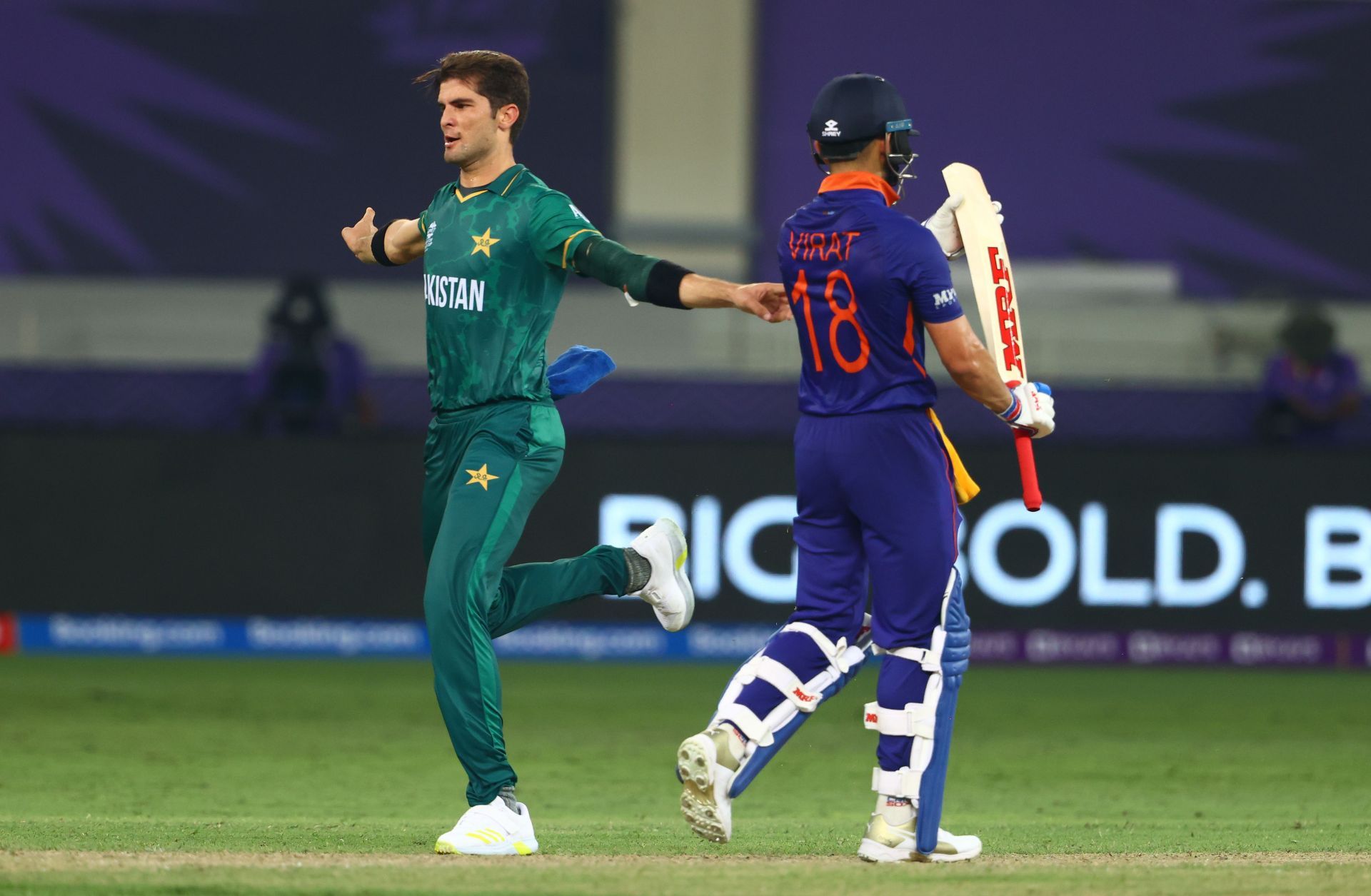
Understandably, the eight members outside Pakistan, India, Australia and England are, as predicted, unhappy with not being considered - including household cricketing nations South Africa and New Zealand.
This could create a silly precedent where national member boards try to claim exclusive rights to ICC-organized events, which could insularize the game.
It would go against attempts to further expand the game into new regions of the world, à la taking the 2024 T20 World Cup to the United States.
